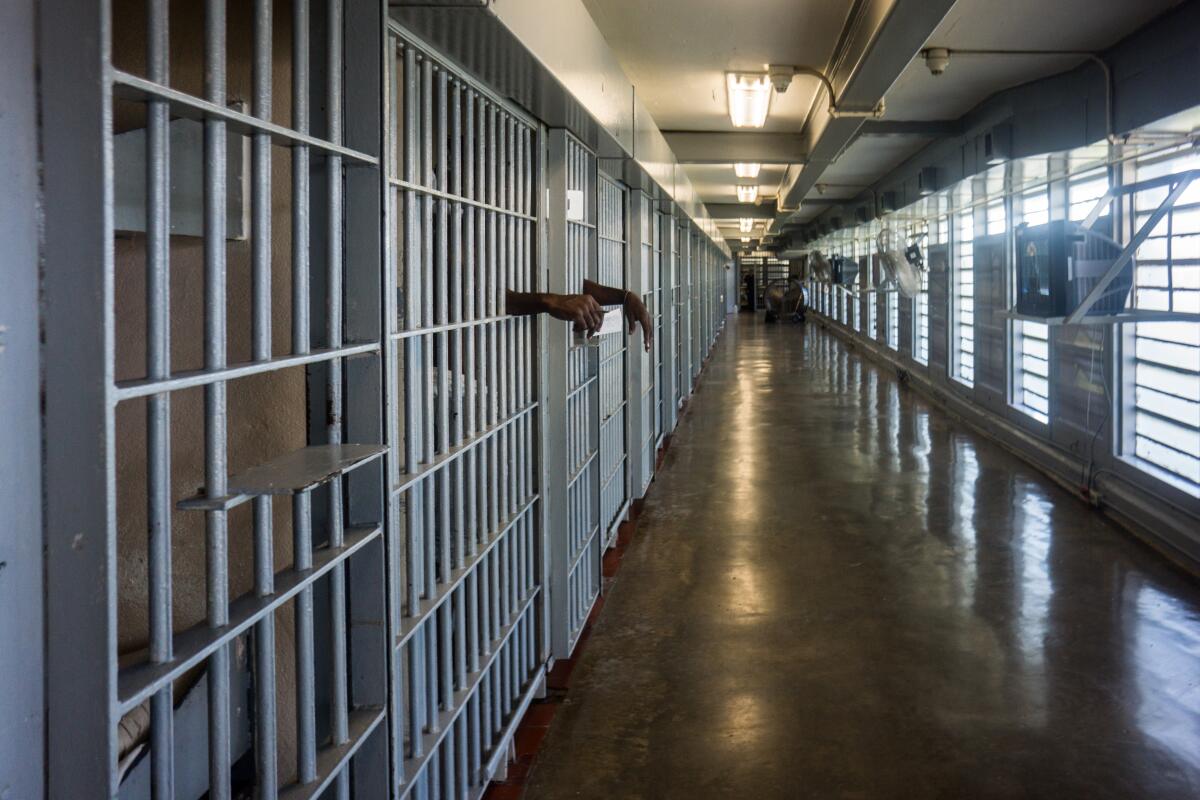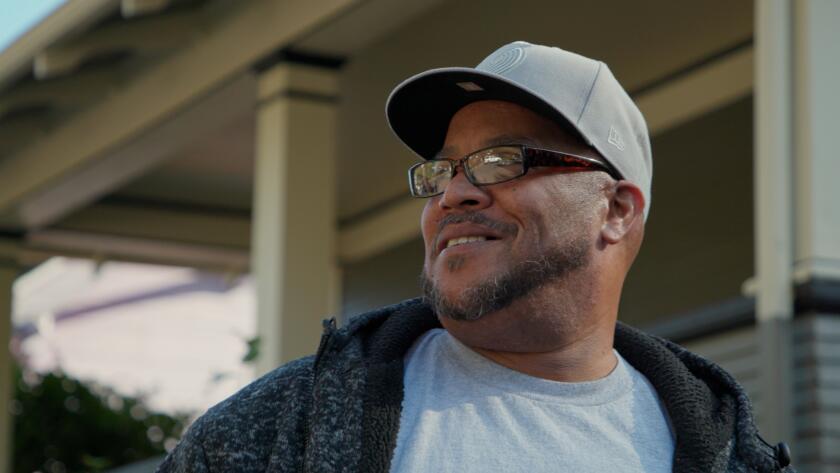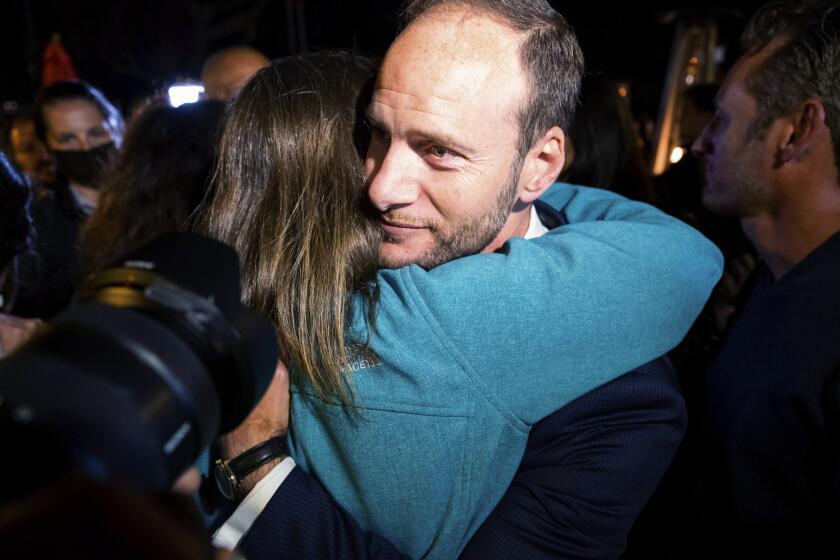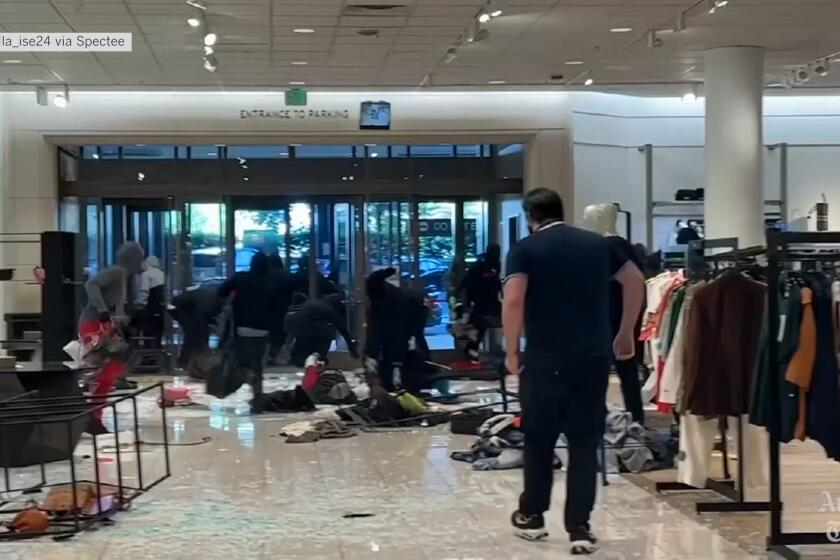Opinion: I spent 22 years in prison for a crime that never happened. That’s not even the worst part

- Share via
I was 22 when I was convicted in March 2000 of armed robbery by a non-unanimous jury in New Orleans. The crime never happened. Yet I was sentenced to 99 years without the possibility of parole, and I would go on to serve nearly 22 years in prison before I was exonerated.
My accuser was a young man who lied about some missing money that he had spent on drugs and told his father that he was robbed at gunpoint. His father called the police. When police eventually showed the young man a photographic lineup, he picked my face. That’s all it took.
- Share via
Nearly 90 years after Oregon allowed split jury verdicts, one formerly incarcerated man and a law professor seek justice for hundreds of people as Oregon confronts the long-term consequences of this unconstitutional jury system.
At my trial, two jurors voted for acquittal, but 10 found me guilty and in Louisiana that 10-to-2 verdict was enough for a conviction.
I was sent to Angola Prison, a former plantation turned into the largest prison in Louisiana. I had to leave my mother, my two daughters and seven siblings behind. I knew the moment I stepped foot at Angola that the journey ahead of me would be hard and painful. I kept fighting my case, but every appeal, every petition was denied.
The non-unanimous conviction that sent me to prison was only possible in two states — Oregon and Louisiana.
Louisiana in 1898 held a constitutional convention that was convened for the explicit purpose of “establishing the supremacy of the white race.” During that convention, Louisiana lawmakers established non-unanimous juries, so that they could make sure that Black people on a jury were silenced. Louisiana’s Daily Picayune at the time claimed that Black people on a jury would always try to prevent white people from convicting Black people, and that allowing convictions with less than unanimous verdicts would be a less violent option than lynching. And so, for over a century Louisiana’s non-unanimous jury scheme was enshrined in the Louisiana Constitution.
Injustice still defines too much policing and punishment. Can data-based advocacy resuscitate reform?
Twenty years after my trial, the U.S. Supreme Court in 2020, in Ramos v. Louisiana, found the non-unanimous jury scheme to be unconstitutional. Justice Brett Kavanaugh declared that it was “thoroughly racist in its origins and has continuing racially discriminatory effects.” After that decision, the Promise of Justice Initiative, a criminal justice reform organization, filed a post-conviction relief application on my behalf seeking that my conviction be overturned and I be given a new trial.
Jason Williams, the Orleans Parish district attorney, made it a promise of his campaign to look at all cases with people convicted by non-unanimous juries. Mine was one of them. I had worked out a plea deal and was preparing for release when I received a call informing me that the person who had accused me of the robbery all those years ago had come forward and confessed he had made the whole thing up. I was going to be exonerated.
Crimes that discourage people from shopping and enjoying pubic places undermine the quality of life and could have serious consequences if left unchecked. So could irresponsible, fear-mongering falsehoods about the causes of those crimes.
I learned that the man who had identified me as his robber was a kid addicted to drugs who was too scared to tell his daddy he had spent his whole paycheck on drugs. The truth is, I didn’t feel angry at him. He could have gone to his grave with this secret. I thanked him for finally coming forward.
But I would not have been convicted with only 10 jurors voting to convict anywhere else but in Louisiana and Oregon.
Even before the Supreme Court declared non-unanimous juries unconstitutional, Louisiana voters agreed that non-unanimous juries were a Jim Crow relic and put an end to this scheme moving forward. Any conviction after Jan. 1, 2019, in Louisiana had to be unanimous.
Cruel summer heat turns non-air-conditioned concrete prisons into ovens that cook the people inside alive. This is not justice. It is inhumane.
But today, Louisiana remains as the only state where people who were convicted by non-unanimous juries prior to 2019 remain incarcerated without a form of relief. A year after the Ramos decision, the Supreme Court decided to leave it up to Louisiana and Oregon to decide what to do with people who were already sitting in prison with these unconstitutional convictions.
The Louisiana Legislature has refused to take action. The Louisiana Supreme Court said it wasn’t its job to decide, and passed the question back to the Legislature. District attorneys could use their power to review these cases and allow post-conviction deals, as D.A. Williams in Orleans Parish was willing to do in my case. But district attorneys in other parts of the state refuse to do so, and fight against any efforts for legislative action.
The story is so different from Oregon, where the Oregon Supreme Court found that the only way to correct this injustice was to grant new trials to all people unconstitutionally incarcerated by a non-unanimous verdict. It’s long past time for Louisiana do the same.
I left friends in prison who were in my situation but whose cases have not been heard. I do what I can to support them from outside. I remain hopeful that one day they will all receive justice and our state will have the courage to right this shameful wrong.
Jermaine Hudson is an advocate for criminal justice reform from New Orleans.
More to Read
A cure for the common opinion
Get thought-provoking perspectives with our weekly newsletter.
You may occasionally receive promotional content from the Los Angeles Times.














